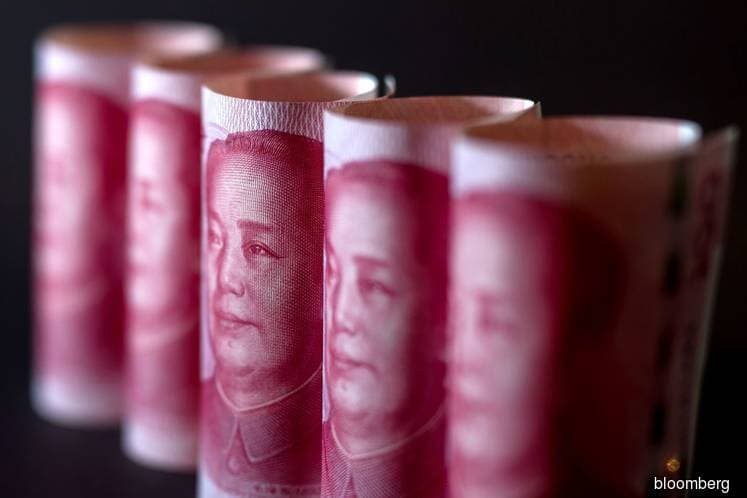
HONG KONG/SINGAPORE (Aug 26): The offshore yuan weakened to the lowest level since it was created in 2010 and Hong Kong stocks slumped amid concern over the intensifying trade war with the U.S. The currency fell as much as 0.86% to 7.1926 per dollar on Monday, extending Friday’s losses after China said it would impose retaliatory tariffs on another $75 billion of U.S. goods.
President Donald Trump responded after equity markets closed by announcing additional levies on Chinese imports. He also called for American companies to pull out of Asia’s largest economy. The Hang Seng Index dropped 3.3% in pre-market trading.
"The gloves are coming off on both sides and as such yuan depreciation is an obvious cushion against US tariffs," said Mitul Kotecha, a senior emerging markets economist at Toronto-Dominion Bank. "As long as China can ensure that yuan weakness is well controlled i.e. it does not provoke strong outflows, expect to see further depreciation in the currency."
The offshore yuan was down 0.4% at 7.1610 at 9:21 a.m. in Hong Kong. It’s fallen about 4% in the past month, the biggest loss in Asia.
Traders will be watching to see if Chinese officials take steps to stabilize its currency, or whether they let it continue to depreciate. The onshore yuan has fallen about 1% against the dollar in a seven-day losing streak and closed at an 11-year low of 7.0979 on Friday. The central bank set its daily fixing at 7.0570 on Monday, stronger than analysts expected.
"Excessive currency depreciation could do more harm than good in China with heavy capital outflow pressure," said Ken Cheung, chief Asian FX strategist at Mizuho Bank. "If the central bank does not support the 7.1 level, the market will push the onshore yuan to test 7.15."
Worsening trade tensions are further undermining sentiment toward Hong Kong equities, which have been battered by concern over violent street protests and an economic slowdown. In the 12th weekend of disturbances, police and protesters were involved in clashes in the western New Territories district of Tsuen Wan.
China sent the strongest warning yet it’s thinking of using troops on Hong Kong streets.
“It’s not only China central government’s authority but also its responsibility to intervene when riots take place in Hong Kong,” the state-run Xinhua News Agency said Sunday in a commentary, drawing on comments by former top leader Deng Xiaoping saying Beijing has to act under such circumstances.